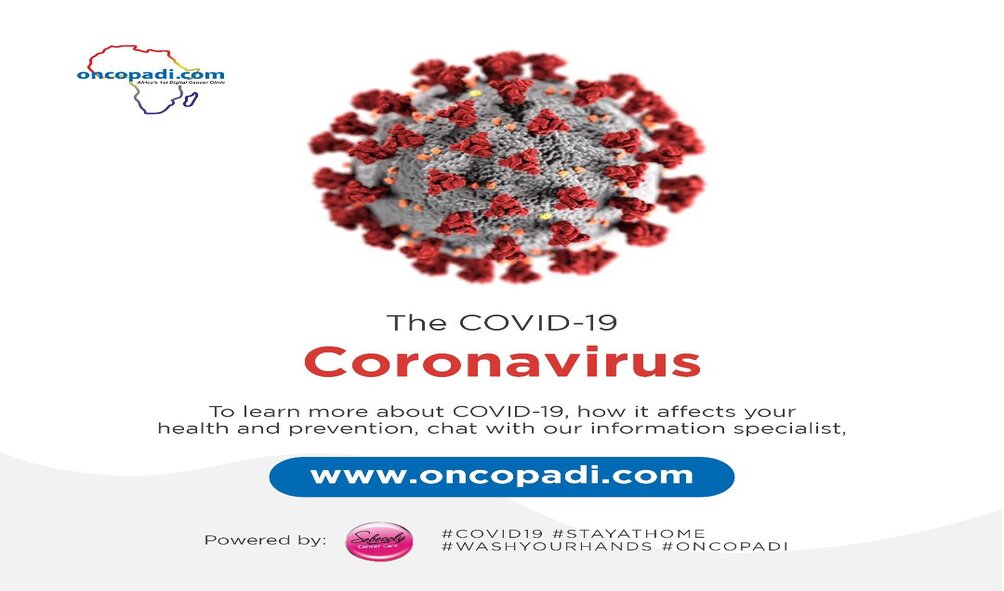With the ongoing COVID-19 pandemic happening globally, there are tons of information and misinformation available online. Some of us are beginning to have more questions, yet we are unable to find the right answers. In this post, we have tried to collate the most frequently asked questions about the virus and provided verifiable answers to them. We hope these answers your questions and allay your fears. If you have further questions, please chat with us, here

1. IS THERE A DIFFERENCE BETWEEN CORONAVIRUS AND COVID – 19?
#Coronaviruses are a large family of #viruses that are found in both humans and animals. In humans, this virus is known to cause respiratory infections ranging from a mild cold to more serious respiratory infections such as Middle East Respiratory Syndrome (MERS) and Severe Acute Respiratory Syndrome (SARS). COVID – 19 on the other hand, is the infectious disease caused by the most recently discovered strain of the Coronavirus which was unknown before the outbreak in Wuhan, China in December 2019.

2. WHAT ARE THE SYMPTOMS OF COVID – 19?
The most common symptoms are Fever, dry cough and tiredness. Other symptoms include aches & pain, nasal congestion, runny nose, sore throat, diarrhoea and change in smell or taste. About 1 in 6 people with the infection may become seriously ill and develop difficulty in breathing. If you feel unwell or have concerns chat with us here.

3. DOES EVERY INFECTED PERSON WITH CORONA VIRUS SHOW SYMPTOM?
No. Not everyone with the virus will show symptoms or feel unwell. About 80% of people infected only have mild symptoms and recover without any medical attention. This is why staying at home and social distancing is important.
4. HOW DOES COVID-19 SPREAD?
COVID-19 is spread through small droplets from the nose or mouth of an infected person when he/she coughs or exhales. These droplets fall on surfaces and others can catch it, when they touch these surfaces with their hands and put their hands in their nose, mouth or eyes. It can also spread when people breath in droplets expelled by an infected person. So, remember to dab or sneeze/cough into your elbow. Also, wash your hands with soap and water.
5. CAN COVID-19 BE CONTRACTED FROM A PERSON WITHOUT SYMPTOMS?
The most common way of spread is through respiratory droplets which are expelled when a person is coughing. Thus, the risk of contracting the disease is low from a person who is not showing any symptoms. However, most people especially in the early stages of the disease have only mild symptoms like a slight cough and do not fall ill. This class of people can very well transmit the virus.
6. WHAT PREVENTIVE MEASURES CAN I TAKE TO PROTECT MYSELF AGAINST COVID-19?
Here are some tips, to reduce your risk of infection
- Frequently and thoroughly wash your hand with soap and water or with an alcohol-based hand sanitizer.
- Keep at least a 1-meter distance between you and anyone sneezing or coughing.
- Avoid touching your face, nose, mouth and eyes.
- Practice good respiratory hygiene. Cover your mouth and nose when coughing or sneezing with the fold of your elbow or with a tissue paper and dispose of the tissue immediately.
Read up more prevention tips from the World Health Organization.

7. SHOULD I WEAR A NOSE MASK TO PROTECT MYSELF?
Face-masks should only be worn if you are infected with COVID-19 and showing symptoms especially coughing or if you are looking after a person infected with COVID-19. Where this is not the case; you are simply wasting a face mask. Currently across the globe, there is a shortage of facemask so let’s endeavour to use it wisely.
8. WHAT GROUP OF PEOPLE ARE AT RISK OF DEVELOPING SERIOUS ILLNESS?
Although studies are still ongoing, data captured so far show that older people and people with underlying medical conditions (such as diabetes, cancer, hypertension, lung diseases) tend to suffer more severe illnesses when compared to others.
9. CAN TAKING ANTIBIOTICS OR CHLOROQUINE HELP TO PREVENT OR CURE COVID-19?
No. Antibiotics are drugs used to treat bacterial infection while Chloroquine is used to treat malaria. COVID-19 is caused by a virus, therefore antibiotics or chloroquine should not be used as a means to prevent or cure it. The Nigerian Centre for Disease Control has warned against this in a Guardian report.

10. ARE THERE ANY MEDICATIONS OR THERAPIES THAT CAN BE TAKEN AS A FORM OF PROPHYLAXIS OR CURE FOR COVID-19?
There are some available medications and traditional therapies that may help to soothe some of the symptoms of the infection. However, there is no evidence to show that there is any current medication that can prevent or cure COVID-19
11. WHAT IS THE INCUBATION PERIOD FOR COVID-19?
An incubation period is defined as the period between infection and showing of symptom. This ranges between 1 – 14 days, most commonly around 5 days for COVID-19.
12. CAN I CONTRACT COVID-19 FROM AN ANIMAL SOURCE?
The possibility of an animal source for COVID-19 is yet to be reported. There is a history of animal sources in other cases of coronavirus infection such as SARS-CoV, where it was associated with civet cats. Even in the absence of data from an animal source, we still need to protect ourselves when visiting a live animal market. Avoid contact with the animals and surfaces in contact with the animals, handle raw meat with care to avoid contamination, avoid consuming raw and undercooked animal produce.
Referenced from the World Health Organization (WHO)
Resource
Read an article on how COVID19 infection is disrupting cancer care.
Still, got questions or need further clarification? Please drop it in the comment box or chat with our information specialist directly. We would love to hear from you.
#Stayathome #StaySafe
xo xo
Oncopadi cares


